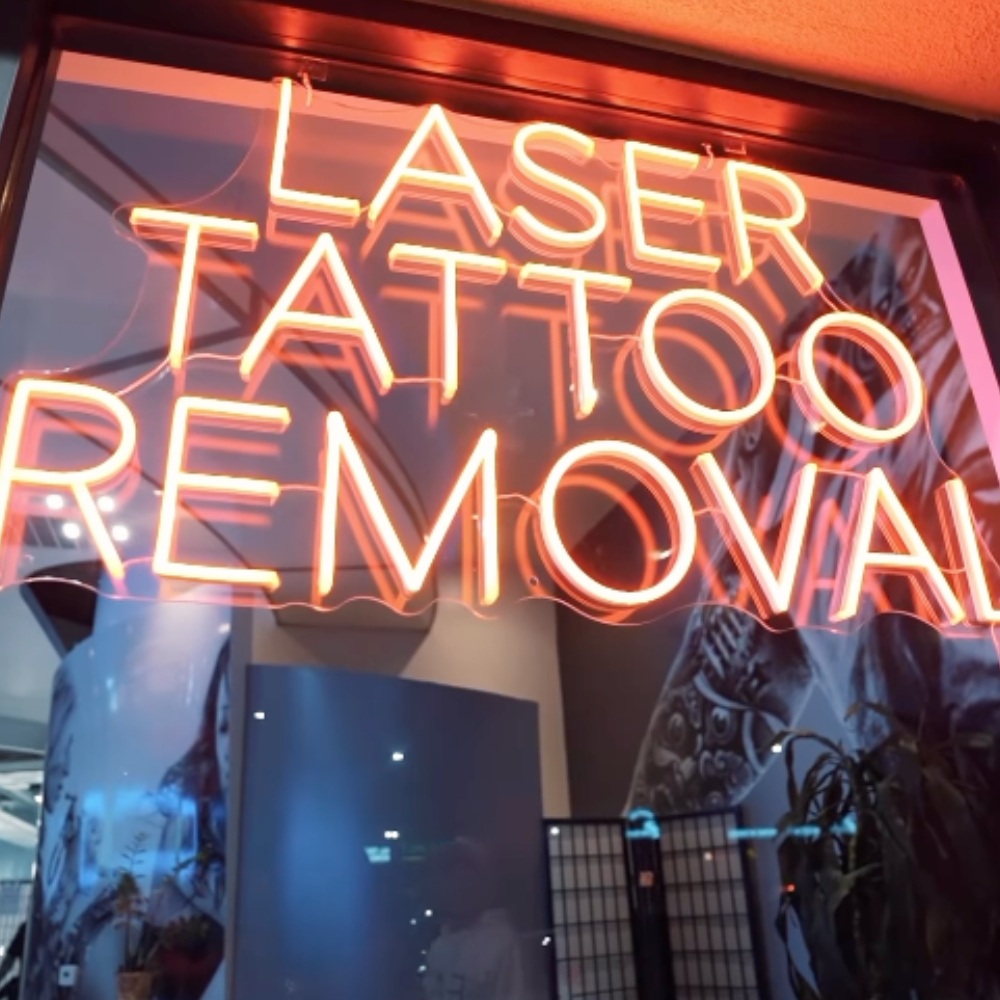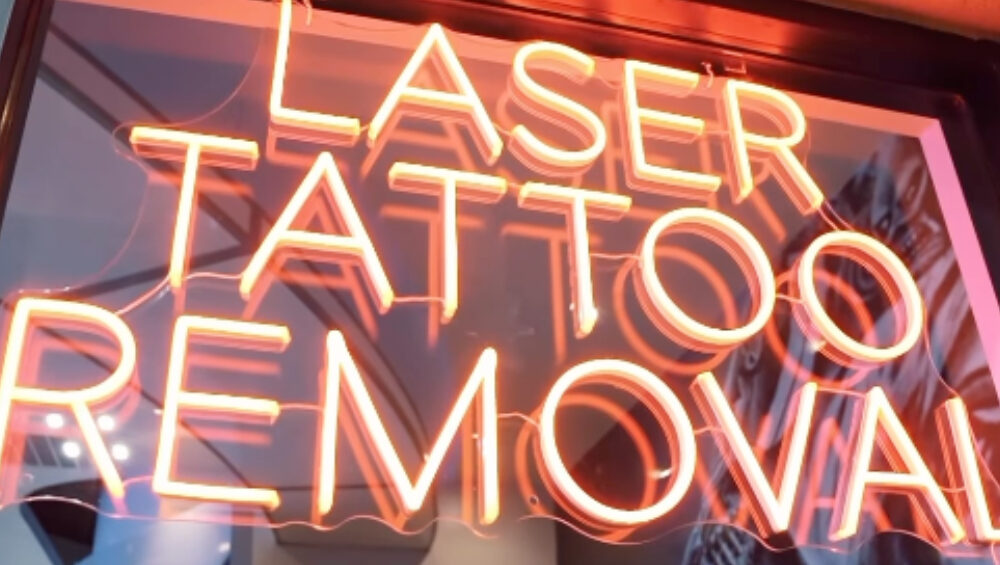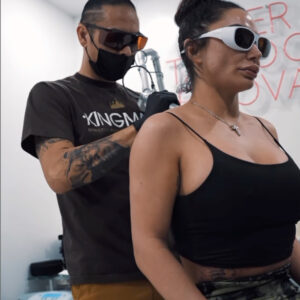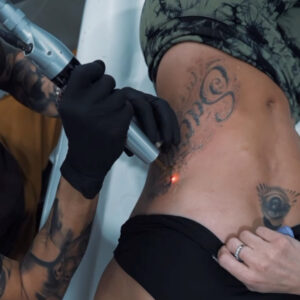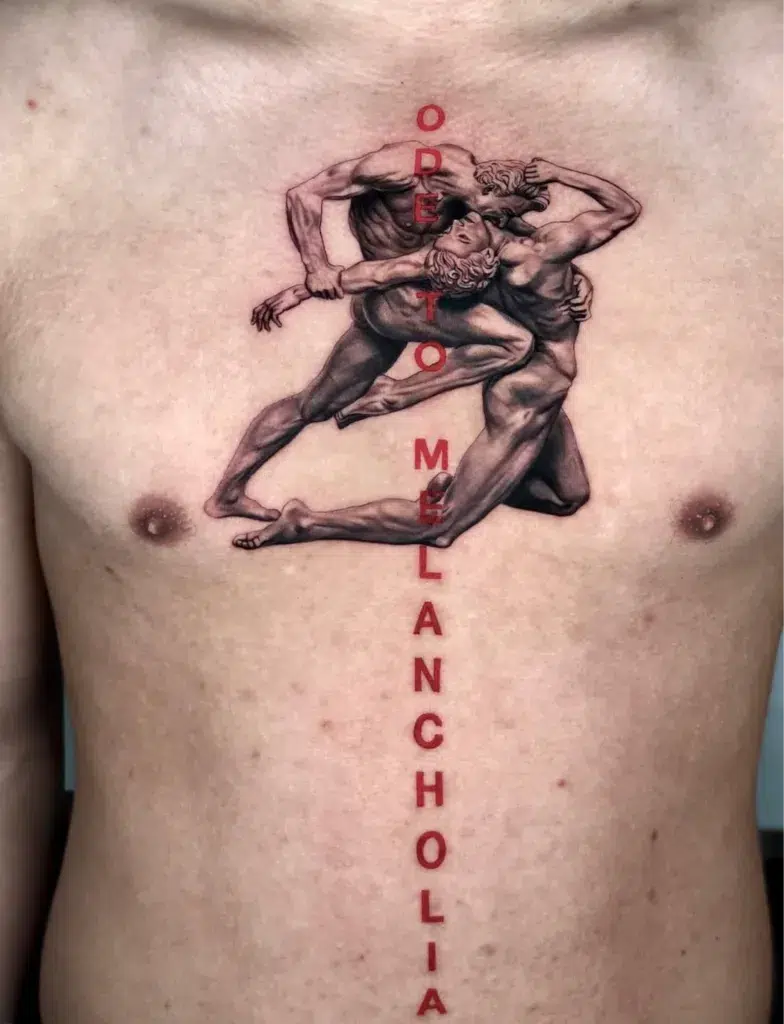Tattoos have long been revered as personal masterpieces, a badge of memories, rebellions, love stories, and milestones.
But sometimes, we grow, and evolve, and our inked symbols no longer represent who we are. In some cases, we simply want it gone because of work requirements or other situations.
This comprehensive guide will help you understand the tried and tested tattoo removal methods. Take the first step to rediscovering your skin’s pristine potential.
How Does Tattoo Removal Work
So, you’ve decided that the dragon wrapping around your forearm or the quote on your ribcage no longer aligns with your personality. Or maybe it’s just that butterfly on your ankle that doesn’t flutter anymore. Before taking the leap into tattoo removal at home, it’s essential to understand the basics.
Now, while your tattooed skin may seem like a canvas painted with ink, it’s actually a bit more intricate. When you walked into tattoo shops near you, you were signing up for a permanent art installation. The ink is embedded deep into your dermis, and any proper removal method will have to dive down to that depth.
How to Remove Tattoo at Home?
With the rise of DIY trends, many people believe the myth that there’s a legitimate method for home tattoo removal. From pantry staples to over-the-counter creams, a quick Google search might show you a slew of DIY tattoo removal options. Yet, it’s essential to take this with a grain of salt, or better yet, avoid it like a poorly drawn tattoo.
That’s why most people find solace in laser tattoo removal, which targets the ink particles and breaks them down so your body can eliminate them. Ever wondered how laser tattoo removal works? Through pulses of light that shatter the ink, which your body then works to flush out.
- Salt and Lemon Juice Cream
Ah, the old sailor’s remedy. Mixing salt and lemon might sound like a magic elixir to fade that ink. But remember, your skin isn’t a piece of graffiti-strewn wall in need of a good scrub. This method is abrasive and can lead to scars, all without removing the tattoo effectively.
- Aloe Vera Gel
It’s not just for sunburns. Some claim this gel can fade tattoos. However, while aloe vera is excellent for skincare, it’s like bringing a needle to a tattoo gunfight when it comes to ink removal.
- Yogurt Cream
The idea here is that lactic acid in yogurt might peel away the tattooed skin. But think about it: would you trust a spoonful of yogurt to erase a work of art? Your tattoo won’t vanish with a dairy mask.
- Salicylic Acid
Commonly found in acne treatments, salicylic acid can exfoliate the skin. Some argue it can do the same for tattoos, but it’s a long shot. Plus, a continuous application might irritate your skin more than any regrettable ink.
- Glycolic Acid
Much like its buddy salicylic acid, glycolic acid is hailed for its exfoliating properties. But the truth is, it’s no match for professional tattoo erasure.
- Tattoo Removal Creams
A stroll down the skincare aisle, and you might see these creams promising to erase that ink. But in reality, they might only lighten the tattoo, if at all. Always remember to schedule a tattoo consultation before putting faith in such products.
- Sand Abrasion
This method is as rough as it sounds. Sanding away your tattoo can be painful, and there’s no guarantee it will work. It’s like using sandpaper on a masterpiece – damaging and ineffective.
- At-home Laser Treatments
With technology permeating every part of our lives, at-home tattoo removal lasers have made an appearance. But, professional lasers are calibrated specifically to target tattoo ink, and it’s a gamble to think a DIY version will be just as effective.
Why Tattoo Removal at Home Can Be Dangerous
Tattoo removal at home can be perilous due to several factors. Firstly, DIY methods often lack the professional oversight and equipment necessary for safe and effective removal. Home remedies, like acid-based creams or abrasive tools, can cause severe skin damage, scarring, and infection if not used properly. Additionally, individuals may underestimate the complexity of tattoo removal, leading to incomplete results and persistent ink. Furthermore, some homemade solutions may contain harmful chemicals that can be hazardous when applied to the skin.
Attempting tattoo removal without professional guidance can also exacerbate pre-existing skin conditions or allergies. To minimize the risks, seeking the expertise of a licensed dermatologist or laser technician for tattoo removal is strongly advised to ensure a safe and successful outcome.
Tattoo Removal Methods 
Rather than diving into the risky waters of how to remove a tattoo at home, it’s always best to consult the professionals. They can guide you on the most effective treatments tailored to your tattoo’s size, color, and location. After all, if you’ve entrusted an artist to place a mark on you for life, you should trust the experts to help you change your canvas when the time comes.
Instead of tattoo removal at home, here are a few treatments that you may consider:
- Q-Switched Laser Treatment: This is the most commonly used tattoo removal method. Q-switched lasers emit short pulses of intense light that target the tattoo pigment without harming the surrounding skin. Over several sessions, the tattoo fades as the body’s immune system works to flush away the shattered ink particles.
- Chemical Peels: Using an acid solution, the top layers of the skin are peeled away. While this method might fade a tattoo over multiple sessions, it’s less predictable and can lead to skin discoloration.
- Cryosurgery: This involves freezing the tattooed area using liquid nitrogen, followed by dermabrasion. The extreme cold helps to destroy the skin’s pigment, making the subsequent removal slightly easier.
- Surgical Excision: In this method, the tattooed area of the skin is literally cut out, and the edges are sutured together. This method is best suited for smaller tattoos and may not be ideal for large ones due to the risk of scarring.
Tattoos chronicle our life’s journey, but sometimes, the path changes. Whether you’re reclaiming your canvas or making room for a new tale, tattoo removal offers a fresh start. Embrace change and pen your next chapter with confidence.

